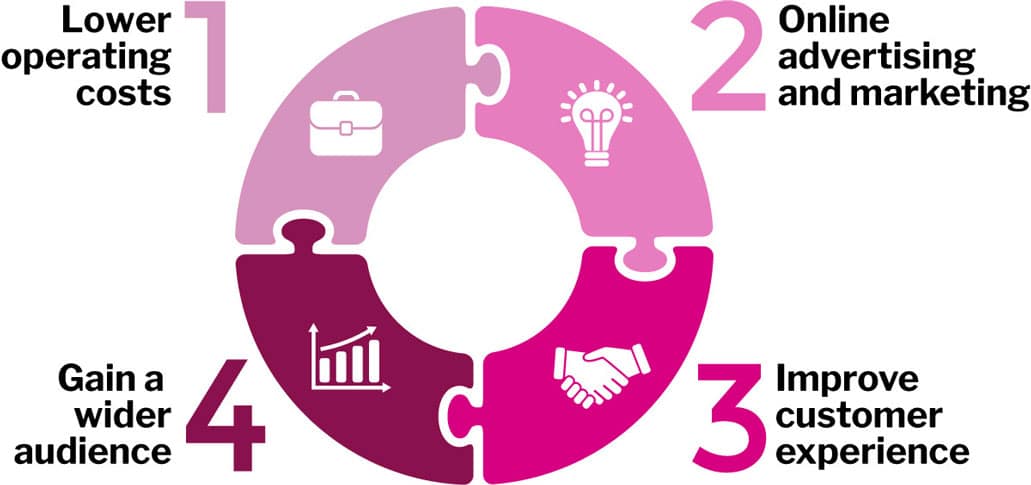The COVID-19 pandemic has led to many non-essential brick-and-mortar shops, especially those in the clothing and fashion industries being shuttered, leading to the loss of jobs for many. Keeping the business alive became a primary concern for many small and medium-sized enterprises (SME) as they struggled to keep afloat amid the economic fallout from the pandemic.
While some business owners took up odd jobs to make ends meet, many chose to diversify their business offerings or shifted their businesses to the online space, and investing in e-commerce.
E-commerce in Singapore
As one of the fastest-growing e-commerce markets in South-East Asia has experienced a surge in e-commerce transactions amidst the Covid-19 pandemic. The ecommerce sector received a surge in transactions, with Singaporeans spending an average of $113 online during the lockdown period. Statistics have also shown that ecommerce websites in Singapore saw 23% growth in total web visits, both mobile web, and desktop, in the first half of 2020, indicating the change in buying behaviour amongst consumers.
With online shopping growing fast in Singapore, this means having an ecommerce website is necessary for retailers and businesses. Singapore has made it easier for SMEs to transform their offline business onto the online channel through the E-commerce Booster Package by Enterprise Singapore, this package aims to support up to 90% of the total cost incurred by business owners to set up their e-commerce platform and reap the many benefits.
Here are four advantages of shifting your business online:

1. Lower operating costs
Low-cost platforms such as Shopify and WordPress make it easier for entrepreneurs to start an online store. Most ecommerce website development agencies are able to leverage these platforms to create mobile-friendly website designs to take payments, manage inventory, and shipping. Having an ecommerce platform also allows you to integrate sales and inventory management between your online and physical store operations. In addition, business owners need not pay for extra upfront costs like rent, repairs, store design, inventory, and storage, to maintain their physical store.

2. Online advertising and marketing
Business owners are able to reduce promotional costs as a result of affordable, and quicker ways to market their products online. With an ecommerce platform, businesses can perform digital marketing activities and direct advertisements to their website. Not only is it integral for businesses to have good ecommerce website designs to reach out to their target audience, high-quality visuals on their advertising collaterals such as banners, infographics, and even videos play an important role to attract and engage with them as well. Interesting copy and write-ups also play a role in influencing your target audience to take actions like signing-up or leaving their details can help with generating leads, ultimately driving sales and conversion rates.
Having an ecommerce website also allows you to harvest more information about your customers. This can be attributed to web analytics tracking such as engagement and conversion rates, in turn allowing you to create better advertisements or promotions for your business.
3. Gain a wider audience
A business that runs only brick-and-mortar stores may only be able to reach a certain number of buyers. On the other hand, ecommerce businesses have the upper hand of reaching a wider range of customers through their logistics and delivery system, making it much easier for scalability.
Because every interaction is faster online, having an ecommerce platform allows businesses to respond to market demands quicker by running relevant advertisements or increasing the stock quantity of a particular product.

4. Improve customer experience
With an increasing number of consumers shopping online, many of them also want the same in-store experience such as having their questions about a particular product answered by your staff. Not only does having an ecommerce store provide customers with the convenience of shopping 24/7, you can also take the user experience up a notch by implementing chatbots or even leverage social media platforms such as Instagram Live to showcase newly-released products and answer questions posed by customers in real-time.
However, shifting your business to online platforms is not enough. One of the most important factors to having a successful ecommerce platform is website design. Website designs such as page layouts, content, and ease of navigation are essential in creating a positive user experience for consumers, ultimately driving sales and conversion rates. Not only should businesses design their online platforms to be responsive to be able to adapt to the users’ screen no matter the device, they should also incorporate strategies such as placement of call-to-action buttons and engaging taglines to encourage consumers to take action. With so many factors to consider when it comes to web design, it is ideal to engage in the professional services of web designers and developers who can help your business adopt the ways of ecommerce.
Looking to make the shift online in a post-covid world? As an ecommerce website design company in Singapore, eFusion has an in-house team of professional designers and programmers to provide a suite of website design and web development services to meet the needs of your brand. Reach out to us to find out more!


